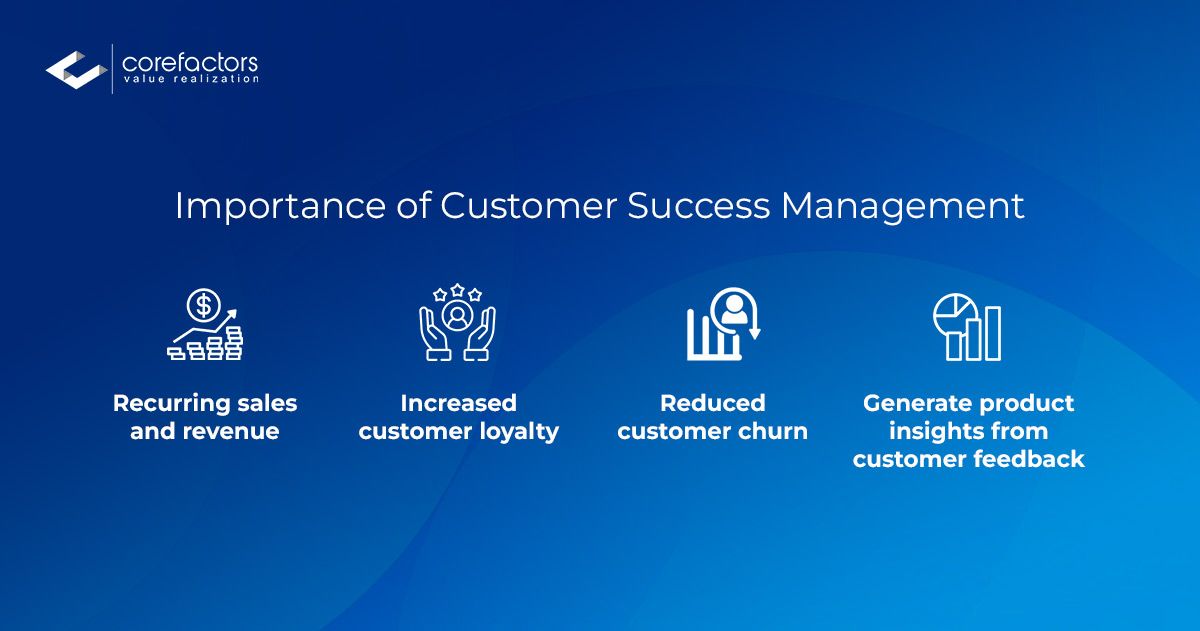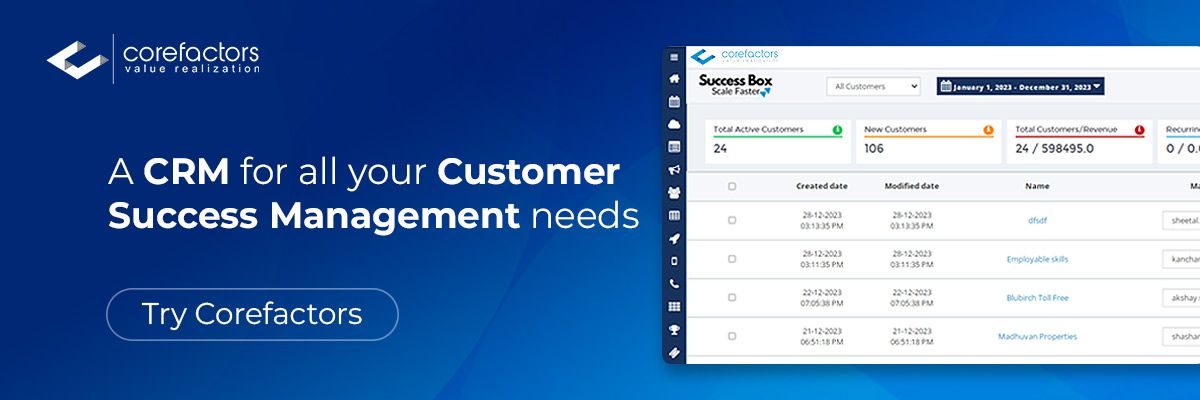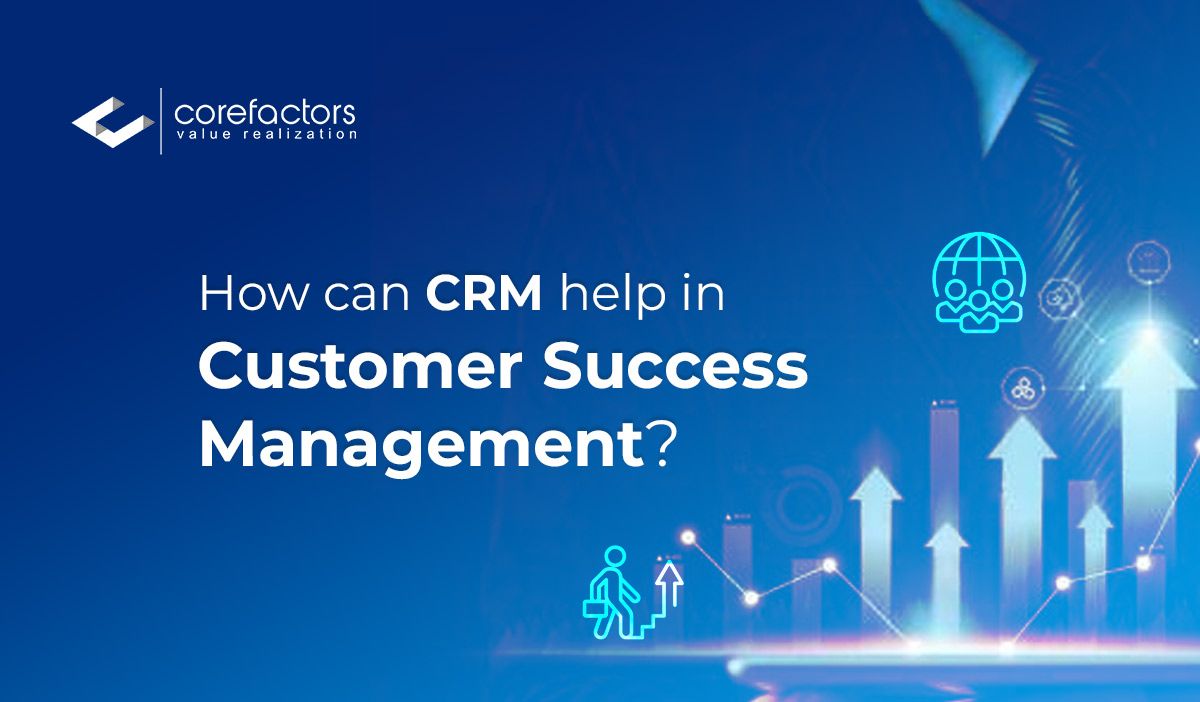Your customer journey continues after sales. Businesses need to focus on what is happening after closing the deal. This is where your customer success management strategy shines.
Does your business need more resources to handle customer success tickets? This blog aims to show how to use a Customer Relationship Management (CRM) Tool for customer success management.
What is Customer Success Management?
Customer success involves anticipating customer needs and challenges while using your product or service and providing solutions. The goal of customer success is to ensure that your customers get their desired outcomes when using what your business offers.

Customer Success Management refers to overseeing your business’s customer success team. A successful customer success management strategy focuses on supporting customers across all sales cycle stages to generate customer loyalty.
Benefits of Customer Success Management?
As your business grows and more customers get added, your customer success responsibilities grow. You will have a dedicated person or an entire team handling customer success requests.
From handling free trial account creation for new users to renewing existing ones, the role of customer success has far-reaching implications.

- They form a part of your revenue generation process as they handle the recurring sales and revenue.
- Prompt customer success actions increase your brand’s customer loyalty and retention.
- They help in reducing customer churn.
- By providing helpful product insights, they increase the customer's lifetime value.
- Customer success has a positive correlation with business success
- They can get helpful product insights from customers through feedback and surveys. This in turn helps improve the product.
Customer Success Management (CSM) vs Customer Relationship Management (CRM)
How is managing customer success different from handling customer relationships?

The two vary in their scope of use. However, there are areas where their functionality can overlap, depending on the type of CRM customization.
Customer relationship management focuses on a broader picture, throughout the sales lifecycle. It takes care of end-to-end interactions with the customer from lead generation to post-sales support and success services.
The CRM tools use data collected across different stages of a lead journey, enabling you to enrich customer experiences throughout their association with your business. In this way, a CRM tool helps your business drive sales, reduce customer churn, increase customer retention rates, among others
On the other hand, the main goal of a customer success management tool is to assist customers to best use your product for their business needs. The success team works towards fostering brand loyalty among customers through their service.
Role of CRM in Customer Success Management
If your business focuses on being customer-centric, you may already use a CRM system or are planning to use one.
Although there is a separate set of tools for customer success management in the market, you can also customize your CRM tool for your customer success teams. You get to hit two birds with one stone- an all-purpose CRM that caters to the needs of all customer-facing teams.
Here’s how.
1. Segmentation
Personalized Communication > Generic Messaging
Segmenting customers is the first step to personalized communication.
The way you handle customers from enterprises and big corporations will differ from SMEs.
If the customer support team has the relevant data (in this case, the industry segment of the client), they can handle the communication accordingly.
Moreover, in B2B product upselling and reselling cases, the number of employees the client company has will also help your customer success team to pitch the right package. This data, already available in the CRM, can be used to segment customer lists.
2. Easy Data Flow
Data silos are the number one obstacle to your business growth. A CRM tool serves as a platform where all customer-facing and revenue-generating teams can communicate and share relevant data without any hindrance.
The Marketing team can access the list of newly added prospects from the data updated by the Sales team. The welcome messages and lead nurturing activities follow. Similarly, the customer support team can easily raise a ticket and notify the development team, whenever a complaint is generated.

The customer support team will benefit from such a platform, as it also needs to collaborate with the other teams to provide the customers with a 360° experience.
3. Monitor Interactions
Imagine calling customer support multiple times and having to repeat the same problems to the same or different people. It is kind of infuriating, isn’t it?
A CRM system with in-built cloud telephony can help your team record each call and audit the interactions for further follow-up. This reduces the risk of customer dissatisfaction that arises from having to repeat the same issues over and over again.
Using the notes feature in the CRM also helps to monitor interactions and prepare successive customer interactions accordingly.
4. Notifications and Alerts
Timing is of utmost importance when it comes to customer success management. You do not want to wait a day to follow up on a plan upgrade query. You might lose an existing customer if they find a better offer somewhere else.
With a CRM tool, the customer success team can always remain notified and receive alerts that provide real-time updates on customer activities. This makes it easier for the team to respond promptly.
Notifications and alerts help your success team take a proactive approach and reach out to customers before a problem can escalate. They can rely on this feature of the CRM to capitalize on upselling and reselling opportunities.
5. Integration
A business relies on multiple tools to operate. A huge advantage is having a tech stack where all these tools become easy to access and operate. The same is true for third-party applications that your customer success team needs to do their job.
For example, Customer Success teams can achieve quicker response times by integrating commonly used communication tools, like Email, with the CRM. This enables real-time communication with customers.
A faster response time contributes to developing a positive customer experience and signifies your success team’s dedication to cater to customers.
Integrating applications with your CRM also increases the scope of automation.
In Conclusion
Your customer success management team can benefit from a customizable CRM that meets their needs. Choose a CRM that comes with the ability to segment customer data, provides notifications and alerts, allows multiple integrations, acts as a collaboration tool among teams, and is able to monitor all customer interactions.
Most importantly, always ask your customer success team for what they actually need before using a CRM for customer success management.








